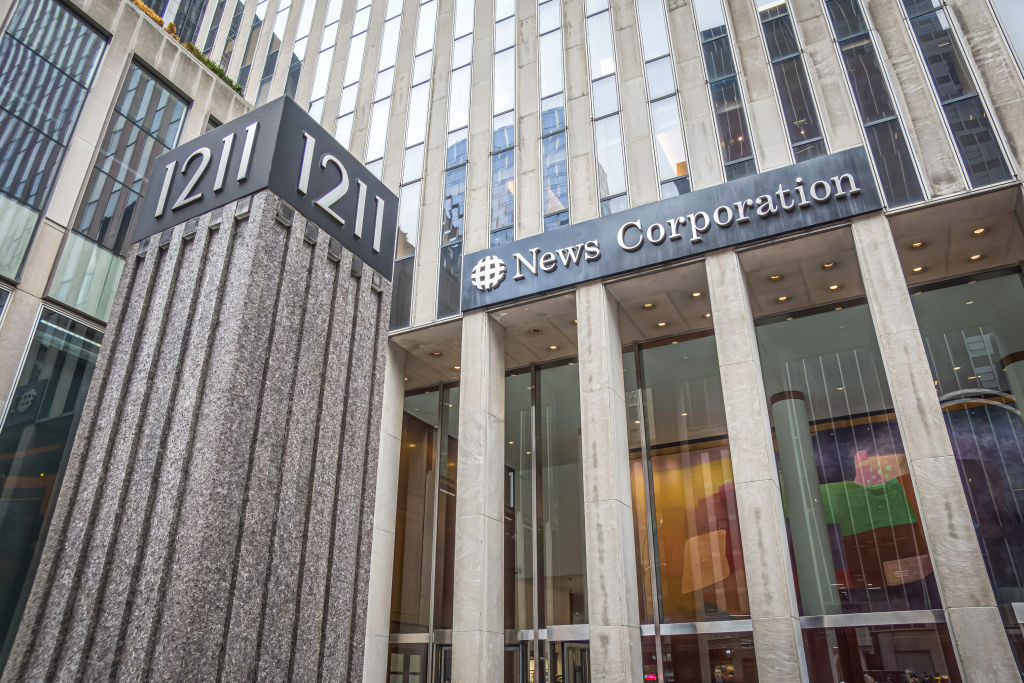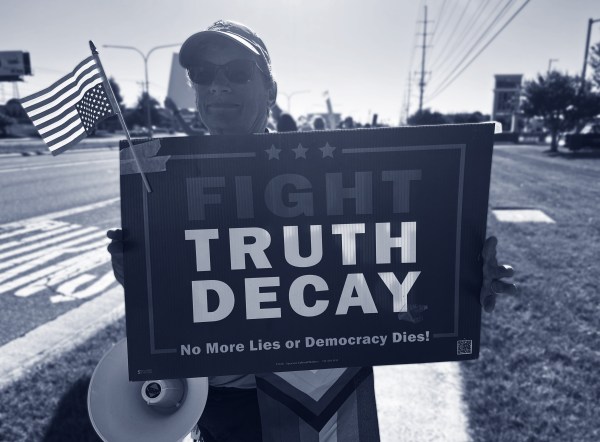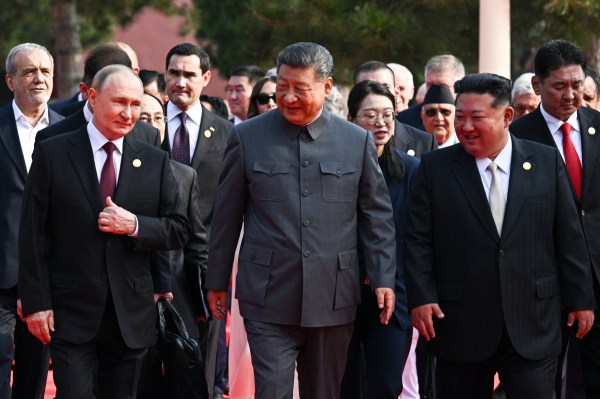The little piece of my father’s abundant wisdom that I probably quote most often these days is about clear intentions in hard things:
“The time to decide whether or not you want to kill a deer is before you go hunting.”
Like all people through all time, many Americans today would like to have the good things that come from wealth and power but not to face the hard choices that the pursuit of these things invariably bring to those who wish to be ethical people. They set out to succeed as political leaders, or business tycoons, or celebrities, or journalists, but don’t think about the implications. And when the time comes to pull the trigger—to risk reelection, economic loss, influence, or audience in order to do what they set out to do—they fail.
Too few of us are like my old boss, Bill Sammon, who, as managing editor for the Fox News Channel, faced extraordinary pressure to flinch at a crucial moment in the work he had set out to do as a journalist. Americans now know some of the story about how Sammon stayed steady and purposeful when his bosses and so many at our then employer were surrendering to fear.
“Weak ratings make good journalists do bad things,” Bill wrote to me in a private email during the period of panic at Fox following our correct call of Arizona for Joe Biden in 2020. I didn’t remember the email until I read it in the wall-to-wall coverage of the suit against Fox by Dominion Voting Systems. But I did remember how steady and sure he was, and how I counted on him to keep his head while everyone else seemed to be losing theirs.
But now the story is out, including how Bill was sacrificed to send “a big message with Trump people.” I got tossed overboard, too. But sacking Bill is the only part that still sticks in my craw. I know how good he was, and how he stayed straight even when the weight of the world was coming down on him.
“Morals excite passions, and produce or prevent actions. Reason of itself is utterly impotent in this particular,” David Hume wrote in A Treatise of Human Nature. “The rules of morality therefore, are not conclusions of our reason.”
I like my dad’s version about the deer better, though. Like many fathers of adolescent sons, as I am today, my dad was looking for yet another way to repeat the same refrain: Think it all the way through.
We were not deer hunters. By the age of 15 I had fully satisfied my appetite for the killing of (but not eating of) West Virginia’s superabundant population of white-tailed deer with one modest doe. The hunting he and I preferred was of the upland bird variety: tromping through autumn fields, watching the dogs work, trading jokes, emitting the most impressive streams of tobacco juice possible, and testing our shooting skills on a busted covey of quail or a speeding pheasant or grouse.
Deer hunting presents a different test, especially in ethics. As you sit in a tree stand at chilly daybreak, you have time to think about what you are doing there. And if a deer does appear, you must take time to line up your shot, since you will likely only get one chance.
I fully endorse the practice for those who like it, and even its necessity. But for me, the sweet eyes of the doe I killed were too much. The moment when I took her life seemed very different than blasting away at a bird. It’s utter hypocrisy from a committed carnivore, and maybe just mammalian anti-avian bias, but deer hunting was not something I ever returned to. Nor did I ever see my father do it.
That’s why he used deer hunting in his aphorism. The act of killing a deer feels morally harder than most things we do in life. His line implied a second, unspoken word of advice: So if you’re not sure, don’t set out in the first place.
The hard things that we are asked to do in our lives very seldom appear by surprise. We think about what we might do if we found a full wallet on the sidewalk, or if we were offered a bribe, or propositioned by a beautiful or wealthy stranger. “How much would someone have to pay you to do XYZ?” But the ethical lapses that we most often fall into are reached gradually. “One thing led to another …” or, if you prefer, “Yadda, yadda, yadda …” We get there by what our Roman Catholic friends call “a near occasion of sin.” Or, as they would say on the North Fork of Short Creek: “If you don’t want to get a haircut, don’t hang around the barbershop.”
The failures that I regret most acutely in life were slouched into, not boldly chosen. But whatever good things I have done were mostly just the opposite. I knew what I meant to do before I got there, and with the help of God and the people who love me, I was willing to do it, even when it hurt.
Jerry Kohlberg was one of the fathers of what we now call “private equity,” but in the 1970s and 1980s still went by the more dubious-sounding name of “leveraged buyout.”
But there’s nothing inherently unethical about the idea. Investors find struggling firms, including those family-owned enterprises that don’t have a next generation ready to run them. Those investors pool their resources, purchase the company, make it more efficient and realize profits when they eventually sell it.
The firm Kohlberg and his partners founded in 1976, KKR, was the major innovator in the field that is now so common and commonly despised. The reason for all that scorn is partly the undeserved product of some very fundamental misunderstandings of economics in the press and in the entertainment industry. But much of it is merited because of the many short-sighted, turn-and-burn deals that looted the assets of old firms, fired their employees, and sold the scraps.
Eleven years after its founding, Kohlberg left KKR, making his announcement to surprised investors at the firm’s annual gathering.
“All around us there is a breakdown of values ... It is not just the ... overpowering greed that pervades our business life. It is the fact that we are not willing to sacrifice for the ethics and values we profess,” Kohlberg said. “For an ethic is not an ethic, and a value not a value without some sacrifice to it. Something given up, something not taken, something not gained.”
Bill Sammon knew that even when the people around us forgot themselves. He made up his mind to kill the deer before he went hunting.







Please note that we at The Dispatch hold ourselves, our work, and our commenters to a higher standard than other places on the internet. We welcome comments that foster genuine debate or discussion—including comments critical of us or our work—but responses that include ad hominem attacks on fellow Dispatch members or are intended to stoke fear and anger may be moderated.
With your membership, you only have the ability to comment on The Morning Dispatch articles. Consider upgrading to join the conversation everywhere.